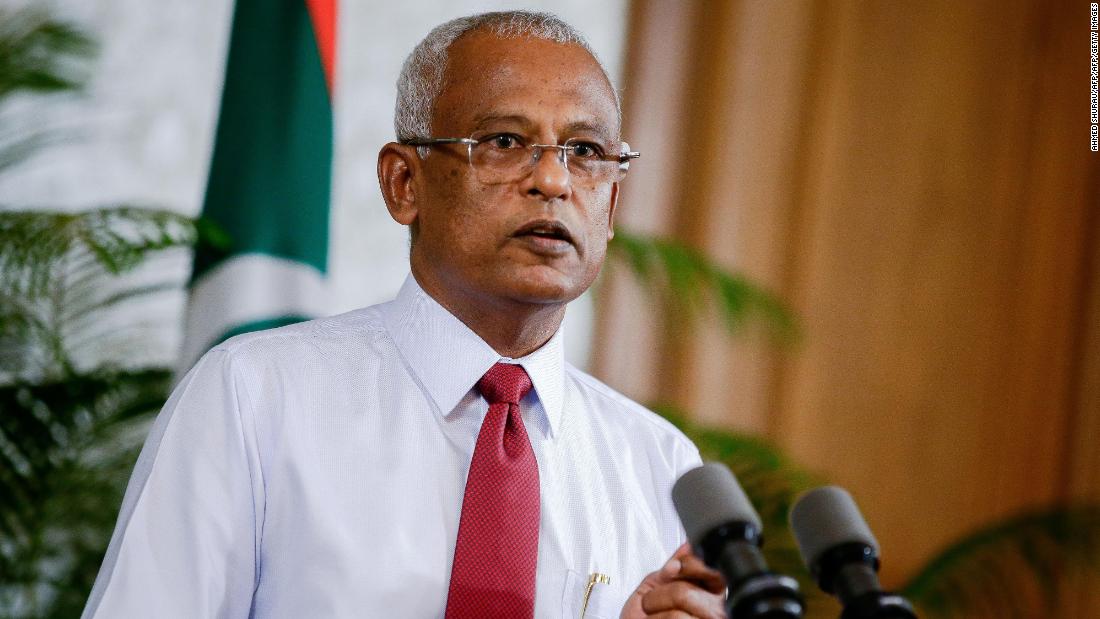
According to state media, initial results show Solih's Maldivian Democratic Party (MDP) has won 67 out of 87 seats in parliament, an historic margin that will strengthen his mandate to investigate the former government's ties to China.
"Today is a happy day," Solih said in a statement late Sunday. "Without exception, the biggest winners of today's elections are the Maldivian people. To have this election across the country under peaceful and civil conditions is a clear win for us as a society. That our campaign was issue-oriented and not based on hatred and narrow divisions is a win for our young democracy. That our government did not hinder those candidates with whom we did not agree is a big win for the country."
Despite his party's victory, Solih promised to continue to work with coalition partners who last year helped him turf out former leader Abdulla Yameen, who plunged the country into chaos as he jailed activists and defied court orders in an attempt to maintain power.
Yameen also moved the Maldives away from traditional ally India toward China, inviting investment under Beijing's expansive Belt and Road Initiative.
Ahead of last year's election, former President Mohamed Nasheed, then in exile in Sri Lanka, claimed as much as 80% of the Maldives' foreign debt was owed to China.
Solih promised to reverse this and investigate the former administration's ties to China amid accusations of corruption.
Speaking to supporters on Sunday, he said a new commission would be tasked with "investigating corruption and recovering state assets function with the support of the new parliament."
"The work of the commission investigating unresolved deaths and enforced disappearances will go ahead more quickly with the support of this parliament," he added, according to Reuters.
The Maldives is one of multiple countries across Asia where Chinese investment and influence have become a major election issue. In Indonesia, which goes to the polls later this month, incumbent President Joko Widodo has come in for significant criticism over the amount of money his administration has accepted from Beijing.
With Chinese investment being viewed with more suspicion, and increased skepticism over the Belt and Road Initiative, pre-existing concerns over Beijing's foreign policy aims and numerous regional territorial disputes have returned to the fore, harming Chinese influence.
No comments:
Post a Comment